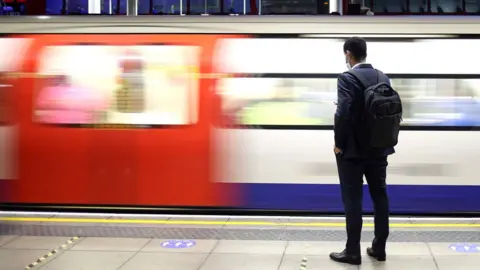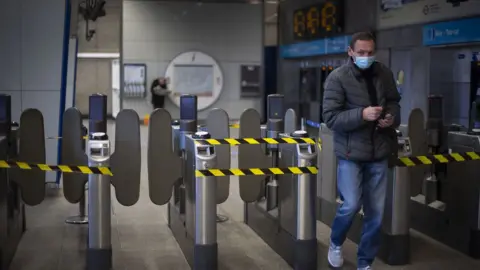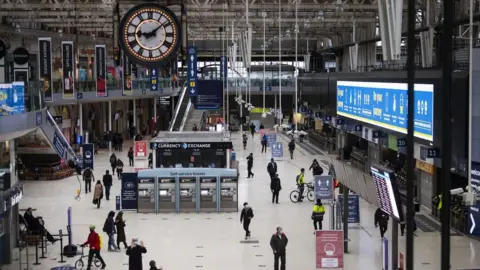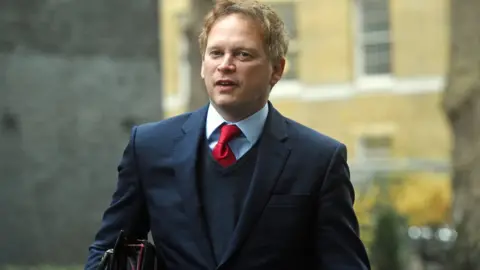Coronavirus: Government agrees £1bn Transport for London bailout package
 Reuters
ReutersTransport for London (TfL) has secured a £1.08bn funding package from the government, the third bailout since the start of the pandemic.
The government has now given more than £4bn since March 2020 to keep services like the Tube and buses running.
The deal will provide funding until 11 December. Fare prices will increase by RPI +1% from next January under the deal, in-line TfL's business plans.
Mayor of London Sadiq Khan called the deal "yet another sticking plaster".
He added: "This is not the deal we wanted but we have fought hard to get it to the best place possible.
"After some extremely tough negotiations, we have successfully managed to see off the worst of the conditions the government wanted to impose.
"These would not only have required huge cuts to transport services equivalent to cancelling 1 in 5 bus routes or closing a Tube line, but would have hampered London's economic recovery as well as the national recovery."
A £1.6bn bailout was agreed in May, followed by a £1.8bn deal in November, which was extended until the end of May.
This new deal confirms TfL will receive income equivalent to £1.78bn in passenger revenue until December, in addition to the £1.08bn bailout.
 PA Media
PA MediaAt the start of the pandemic, TfL's fare revenues fell by 90%. There has been a similar drop in advertising revenues, as companies cancelled contracts to advertise on the London Underground network.
The number of commuters on the network is now nearly 60% of pre-pandemic levels.
The funding package could be increased or cut depending on passenger numbers.
It also comes with conditions, such as from 2023 TfL must increase revenue by between £0.5- £1bn each year.
Mr Khan said: "There are very few options to do this and forcing TfL to impose draconian additional measures on London would be unacceptable."
 PA Media
PA MediaThe government has also called for a review of "TfL's generous pensions scheme".
And at least £100m must be set aside for the healthy streets programme - which funds Low Traffic Neighbourhoods - and active travel programme, as part of the deal.
A Department for Transport (DfT) led initiative seek to convert "at least one Underground line" to driverless trains.
Last year Boris Johnson argued driverless Tube trains should be a condition of any future funding of TfL.
A leaked TfL study found such a scheme would cost £7bn and represent "poor value for money".
 PA Media
PA MediaTfL claims the new requirements will also mean the network needs to find savings or new income of around £900m this year.
In a letter to the mayor, Transport Secretary Grant Shapps condemned proposed plans for a boundary charge — costing £3.50 a day, or £5.50 for drivers of more polluting vehicles.
Mr Shapps said it "cannot be right to impose a 'boundary tax' on non-Londoners to pay for services mainly enjoyed by Londoners".
He added: "Throughout this process, the government has maintained that these support packages must be fair to taxpayers across the UK and on the condition that action is taken to put TfL on the path to long-term financial sustainability."
London's Transport Commissioner Andy Byford said the funding will "enable us to continue to run near full levels of service to stimulate London's recovery and deliver a host of improvements".
Mr Byford said: "The pandemic has shown our financial model, with such a disproportionate reliance on fare revenue, to be not fit for purpose.
"It is vital that we also use this period to agree a longer-term settlement so that we can plan effectively for London's future."
